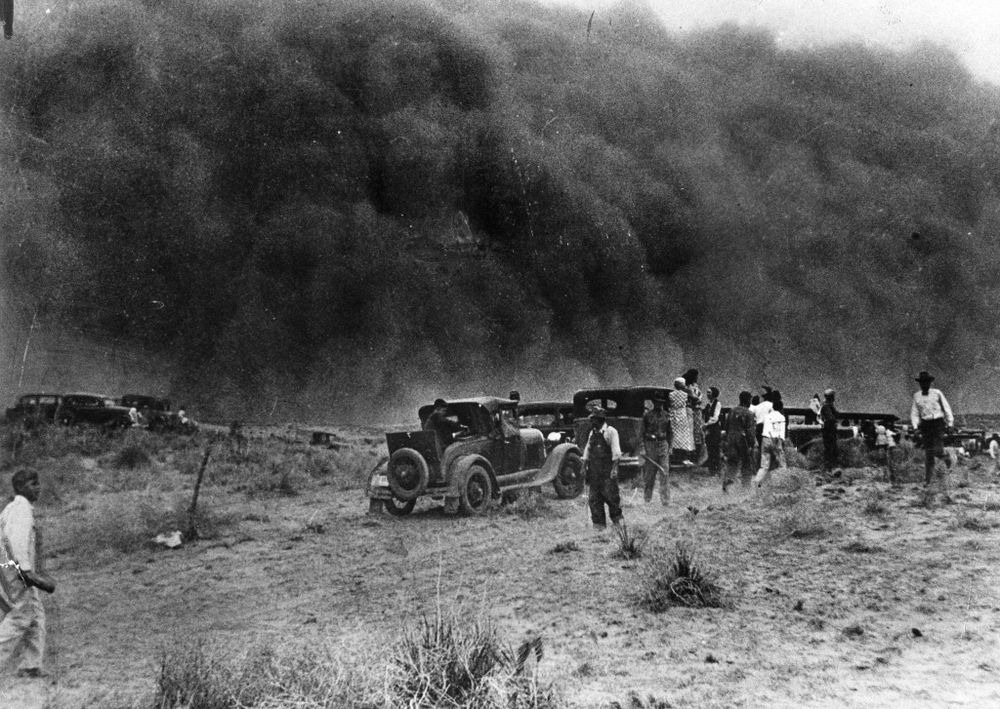October 17, 2023
The Dust Bowl was a time of harsh dust storms in the central United States during the 1930s. Black Sunday, one of the worst dust storms in American history, struck on April 14, 1935. However, it was not the only storm. For almost ten straight years, between 1930 and 1940, high winds and terrible dust storms destroyed most of the farms and towns in the Great Plains.

Several factors caused the Dust Bowl. In the 1920s, the central U.S. had more rain than usual, and agriculture boomed. However, farmers did not practice environmentally friendly farming techniques. First, to plant as much wheat as possible, they plowed over all of the natural prairie grasses that kept the topsoil in place. Second, they planted crops too often instead of giving the soil a break now and then. As long as the rain kept falling, neither of these mistakes caused problems.
But in 1930, the rain stopped coming. The soil became dry, loose, and unable to support crops. The drought would have been bad enough for farmers, but strong winds picked up across the Great Plains. These “black blizzards” could sometimes last one or two days straight.

Farming families realized they could not stay in the Great Plains. Their houses and belongings were always dirty; the dust blew into their lungs, making them sick. Also, their farms were unproductive. Thousands of families packed up and moved west to find work because they heard California had good agricultural jobs. However, the whole United States was suffering from an economic crisis, and California’s farms did not have room for many new workers.
The Dust Bowl did end eventually. The U.S. government realized that it had to encourage farmers to practice more responsible farming techniques. The Soil Conservation Service studied the land and established ways to preserve the earth for the future. By 1938, the amount of dust blowing around had reduced by 65%. In 1939, large amounts of rain came and ended the drought. This time, farmers had better ideas of how to care for the environment around them.
